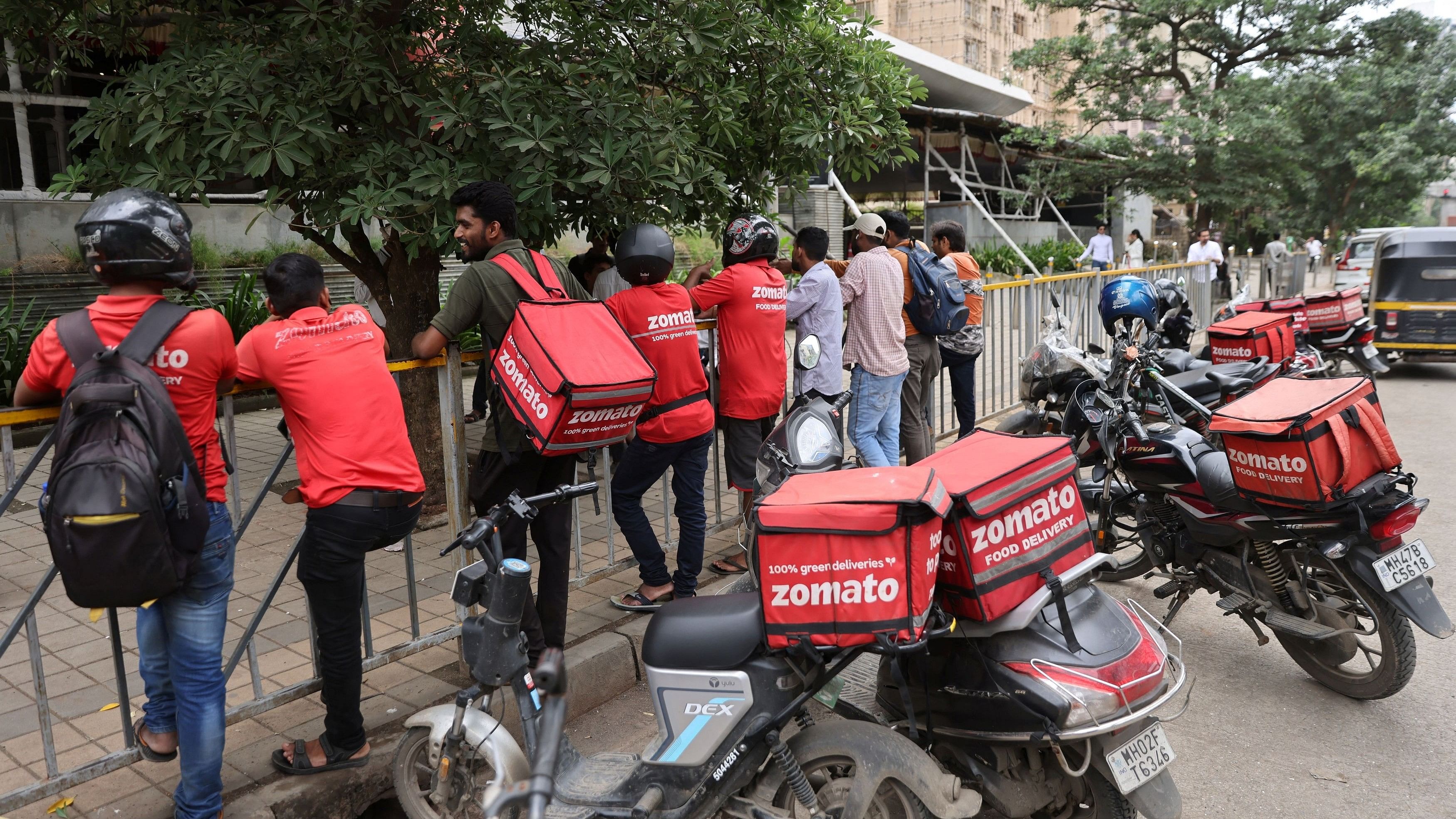
Gig workers wait in line to collect their delivery order outside a mall.
Credit: Reuters Photo
Bengaluru: A majority of digital labour platforms in India do not have a minimum wage policy in place for gig workers, as per a new report by Fairwork India titled Labour Standards in the Platform Economy.
The report, which studied labour practices of 12 platforms including Amazon Flex, BigBasket, BluSmart, Dunzo, Flipkart, Ola, Porter, Swiggy, Uber, Urban Company, Zepto, and Zomato, found that BigBasket, Flipkart, and Urban Company were the only firms with a minimum wage policy to ensure that all their workers earn at least the hourly local minimum wage after factoring in work-related costs.
Although, none of the platforms under review could provide sufficient evidence that workers earn the local minimum wage.
The report assessed the minimum standards of fair work among gig workers employed by these platforms on five parameters that each carried two points. These included fair pay, fair conditions, fair contracts, fair management, and fair representation.
It found a number of gaps that these platforms have in terms of providing adequate safety equipment and periodic safety, medical insurance coverage in cases of work-related injuries, data protection for workers, and representation of workers in policies and actions affecting them.
Notably, none of the surveyed companies scored a point for fair representation due to the absence of a collective body or trade union for the workers to express themselves.
"It is disconcerting that despite the rise in platform worker collectivisation across the country, over the past four years, there was insufficient evidence from any platform that showed willingness to recognise a collective body of workers," the report said.
Overall, Big Basket scored the highest with six points out of 10, followed by Zomato, Urban Company, and Zepto. At the same time, Ola and Porter fared the lowest with zero points in any of the parameters, and Uber scored only one point.
Fairwork in its report for 2023 decided to include ride hailing application BluSmart, which was unique due to the platform’s differentiation from other companies that operate on “asset-light” models and instead owns and leases electric vehicles to its workers.
Despite its first time being on the list, BluSmart scored higher than its more established counterparts in the ride hailing sector, receiving 5 points out of 10.
“There is room for cautious optimism that BluSmart’s operational model might represent a step towards better conditions for drivers in the platform economy,” the report said.